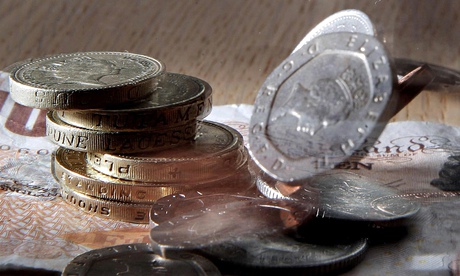Britain’s workers were handed some Christmas cheer after official figures showed real pay is starting to rise again after six years of falling wages.
Wages for UK workers increased by 1.6%, excluding bonuses, comparing August to October this year with the same period in 2013, which was higher than the 1.5% rise predicted by the City.
In the month of October alone, wages were up 1.8% compared with a year earlier, which was the highest in seven months according to the Office for National Statistics. It was also higher than October’s 1.3% inflation rate, signalling a rise in real wages.
George Osborne, the chancellor, described it as “a major moment in the British recovery”.
Economists said the trend should continue in the coming months as UK inflation remains low amid falling oil prices.
Data published on Tuesday showed inflation fell further in November to a 12-year low of 1%, half the Bank of England’s 2% target. It is expected to fall below 1% in early 2015, boosting the pockets of UK consumers.
Inflation outpaced pay growth for the majority of the time since 2008, piling on the financial misery for households.
James Knightley, economist at ING, said: “With inflation running at just 1% and set to fall further we are soon going to be seeing quite a pickup in real take-home pay. With consumer confidence back at pre-crisis levels this should be very good news for consumer spending.”
Low inflation has supported the Bank’s case for keeping interest rates on hold at an all-time low of 0.5%. However, the governor, Mark Carney, has also indicated that the rate-setting monetary policy committee will consider raising rates when there are signs of a sustainable recovery in real wages. Markets are currently expecting the first increase to come after the general election in May next year.
Danny Alexander, the Liberal Democrat chief secretary to the Treasury, credited the government with the increase in earnings. “The earnings figures show that the positive effects of our economic recovery are beginning to show in people’s wage packets,” he said.
Unemployment data published in the same report showed the UK jobless rate was unchanged at 6% in the period August to October, disappointing City expectations of a drop to 5.9%.
The number of unemployed people fell by 63,000 compared with the previous three months, to 1.96m. It was the smallest drop in unemployment since the third quarter of 2013, in the latest sign that improvement in the jobs market is slowing. It follows a period when unemployment fell much more rapidly than policymakers were expecting.
Alan Clarke, economist at Scotiabank, said: “To be fair, it was a pretty wild party while it lasted, with unemployment falling far, far faster than expected, so a softer couple of months is hardly a disaster.”











